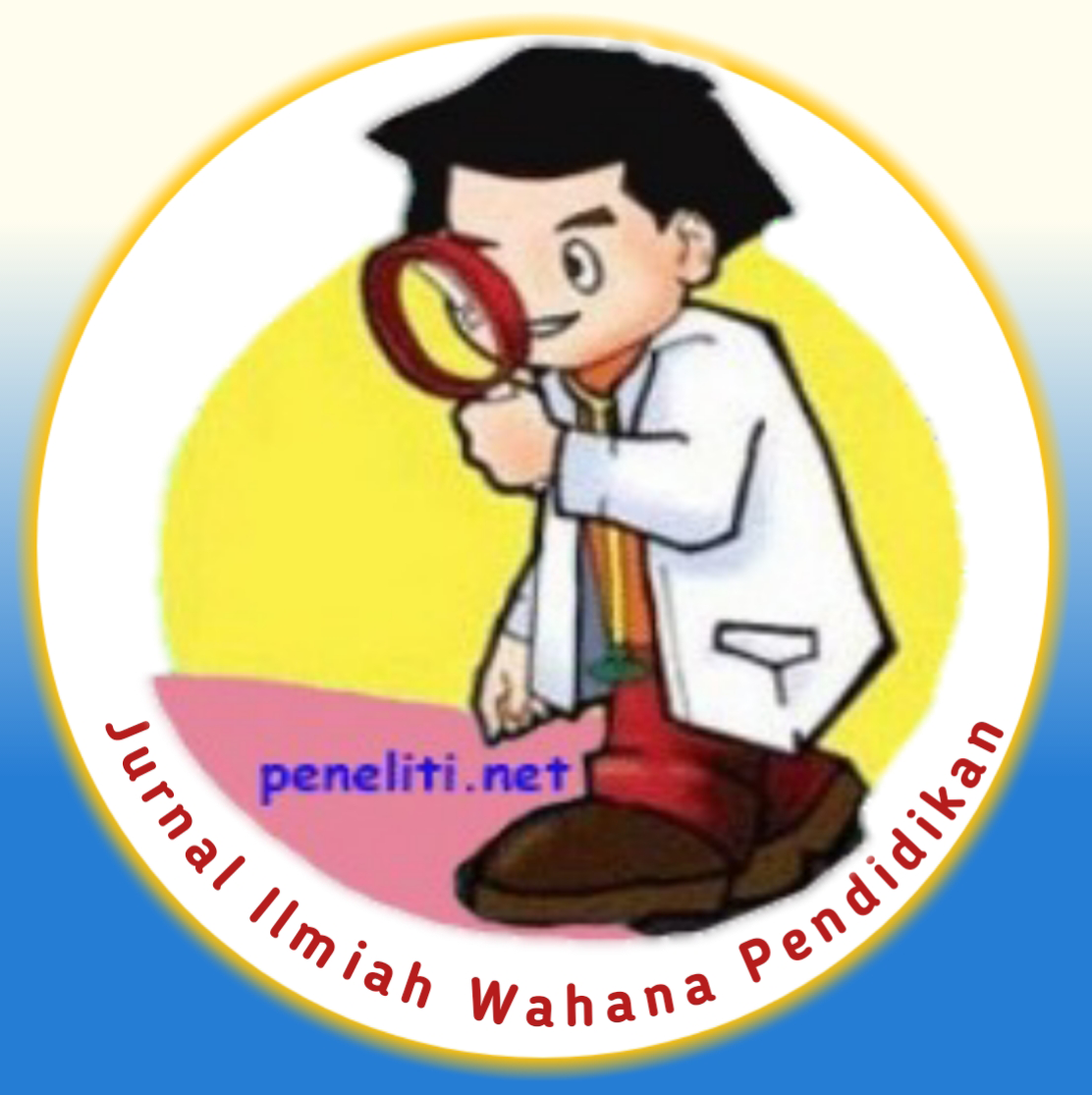Pengaruh Model Pembelajaran Inquari Terbimbing terhadap Kemampuan Berpikir Kritis Siswa SMA Negeri 3 Kota Ternate
Abstract
Critical thinking is a reflective and reasonable thinking process that focuses on beliefs and actions that are carried out reliably. Thinking skills also allow students to analyze the meaning of the problems at hand, are able to plan solutions by considering various alternative solutions and are able to implement and complete the solutions that are considered the most appropriate. Critical thinking skills have an important role in improving human quality. Someone who has the ability to think critically can ask the right questions, find relevant information, be effective and efficient, be creative, have reasonable reasons, and have consistent and credible conclusions. Several research results prove that students' critical thinking skills are still low. The learning strategy that must be done by the teacher in improving students' critical thinking skills is to use cooperative learning. The model that is expected to empower students' critical thinking is guided inquiry learning. This research is a quasi-experimental research (quasi-experimental). Experimental research aims to determine the effect of the guided inquiry learning model on students' critical thinking skills at SMAN 3 Ternate City. The design used in this research is the Pretest-Posttest Nonequivalent Control Group Design. The number of samples was 52 students, consisting of 26 high school students in class XIa and 26 students in class XIb. Furthermore, each sample class represents the guided inquiry learning model and conventional learning. Data analysis used analysis of covariance (ANACOVA) at a significance level of 0.5%. If the anacova result is significant, then it is continued with the BNT test. Based on the results of the analysis and discussion of this research, it can be said that the guided inquiry learning model has a significant effect on students' critical thinking skills and the test results prove that there are differences in students' critical thinking skills using the guided inquiry learning model. guided inquiry learning model with conventional learning.
References
Ary, dkk. (1982). Plantar Penelitian dalam Pendidikan. Usaha Nasional.
Amijaya, L. S., Ramdani, A., & Merta, W. (2018). Pengaruh model pembelajaran inkuiri
terbimbing terhadap hasil belajar dan kemampuan berpikir kritis peserta didik. Jurnal
Pijar MIPA, 14(1), 94-99. Tersedia pada https://jurnalfkip.unram.ac.id/index.php/JPM/- article/view/468. Diakses 7 Oktober 2019.
Cahyani, N. I., & Azizah, U. (2019). Penerapan model pembelajaran inkuiri terbimbing untuk melatihkan keterampilan berpikir kritis pada materi laju reaksi kelas XI SMA. UNESA Journal of Chemistry Education, 8(3), 320-326. Tersedia pada http://jurnalmahasiswa. unesa.ac.id/index.php/journal-of-chemical-education/article/view/30546. Diakses 7 Oktober 2019
Carter, L; Rukholm, E., Mossey, s., Dresler, G. V., Baker, D., Sheehan, C. (2006). Critical Thinking in the online nursing Education setting: Rasing the bar. Canadian Journal of University Continuing Education, 32, 27–46.
Darmadi. (2011). Membentuk Peradaban Bangsa melalui Pendidikan Multietnik. Bandung: Alfabet.
Ennis, R. H. (2011). The Nature of Critical Thinking: An Outline of Critical Thinking Dispositions and Abilities. University of Illinois. https://doi.org/10.22329/il.v6i2.2729
Facione, P. a. (2011). Critical Thinking : What It Is and Why It Counts. In Insight assessment (Issue ISBN 13: 978-1-891557-07-1.). https://www.insightassessment.com/CT-Resources/Teaching-For-and-About-Critical-Thinking/Critical-Thinking-What-It-Is-and-Why-It-Counts/Critical-Thinking-What-It-Is-and-Why-It-Counts-PDF
Kay, K., & Greenhill, V. (2011). Twenty-First Century Students Need 21st Century Skills (dalam G. W). Springer Science+Business Media B.V. https://doi.org/DOI 10.1007/978-94-007-0268-4_3
Kusmarini. (2011). Pendidikan Multikultural. Suatu Kajian Tentang Pendidikan Alternatif di Indonesia untuk Merekatkan Kembali Nilai-Niali Persatuan, Kesatuan dan Berbangsa di Era Global.
P21. (2015). P21 Framework Definitions To (pp. 1–9).
Rambitan, V. M. (2012). Pengaruh strategi pembelajaran berpola pemberdayaan berpikir melalui pertanyaan (PBMP) dengan Thinh Pair Share (TPS) terhadapo sikap sosial, keterampilan berpikir kritis, pemahaman konsep, dan terensi biologi siswa multietnis di SMP Kota Samarinda [Universitas Negeri Malang]. http://repository.um.ac.id/id/eprint/64616
Seranica, C., Purwoko, A. A., & Hakim, A. (2018). Influence of guided inquiry learning model
to critical thinking skill. IOSR Journal of Research & Method in Education, 12(4), 407-
Tersedia pada www.iosrjounals.org. Diakses 6 Oktober 2019.
Scott, C. L. (2015). The Future of Learning 2: What kind of Learning for the 21st Century? In Education Research and Foresight.
Seli, P., Wammes, J. D., Risko, E. F., & Smilek, D. (2016). On the relation between motivation and retention in educational contexts: The role of intentional and unintentional mind wandering. Psychonomic Bulletin and Review, 23(4), 1280–1287. https://doi.org/10.3758/s13423-015-0979-0
Sugiono. (2008). Metode Penelitian Pendidikan. Afabed.
Tuckman, B. . (1999). Condating Educational Research (Orlando (ed.); 5th ed.). Harcourt brace College.
Widayati, W. (2019). Pengaruh Model Pembelajaran Berbasis Penemuan terhadap Kemampuan Berpikir Kritis Matematis dan Self Concept dengan Mengontrol Kemampuan Awal Peserta Didik Kelas VII SMP pada Materi Bangun Datar. Jurnal Riset Pendidikan Dan Inovasi Pembelajaran Matematika (JRPIPM), 1(2), 95. https://doi.org/10.26740/jrpipm.v1n2.p95-105




